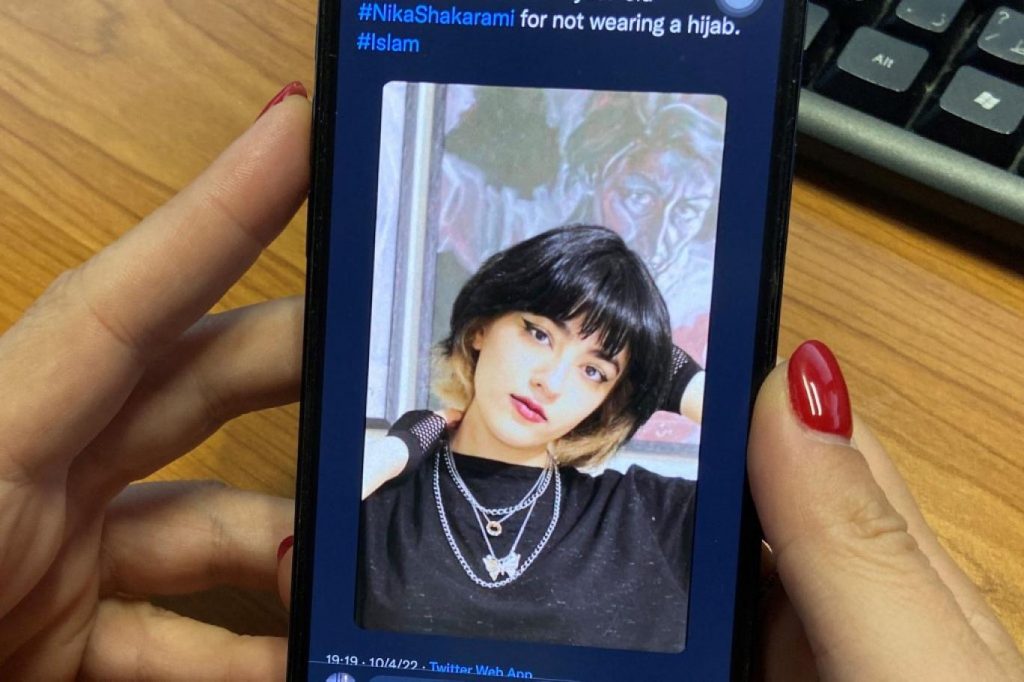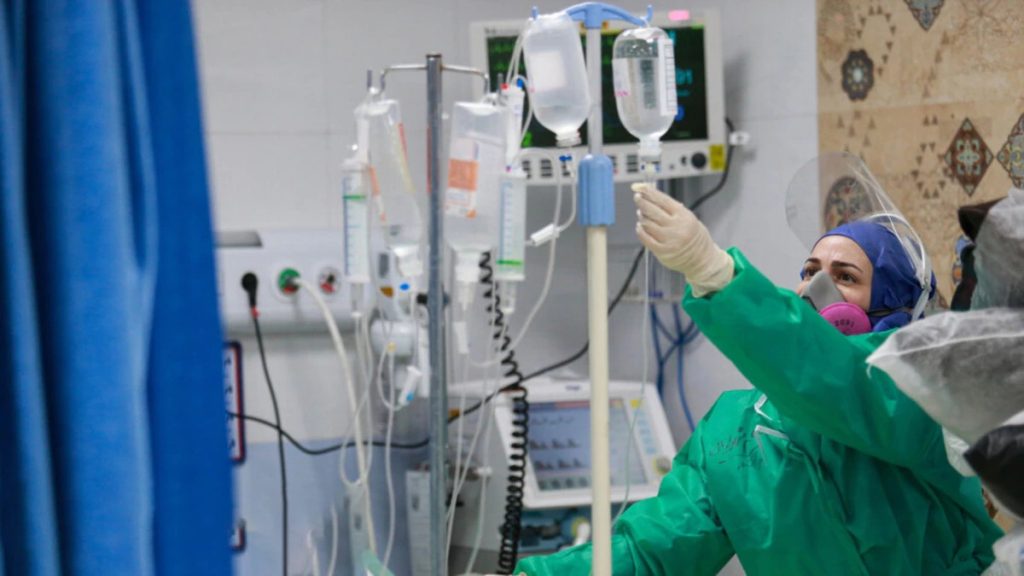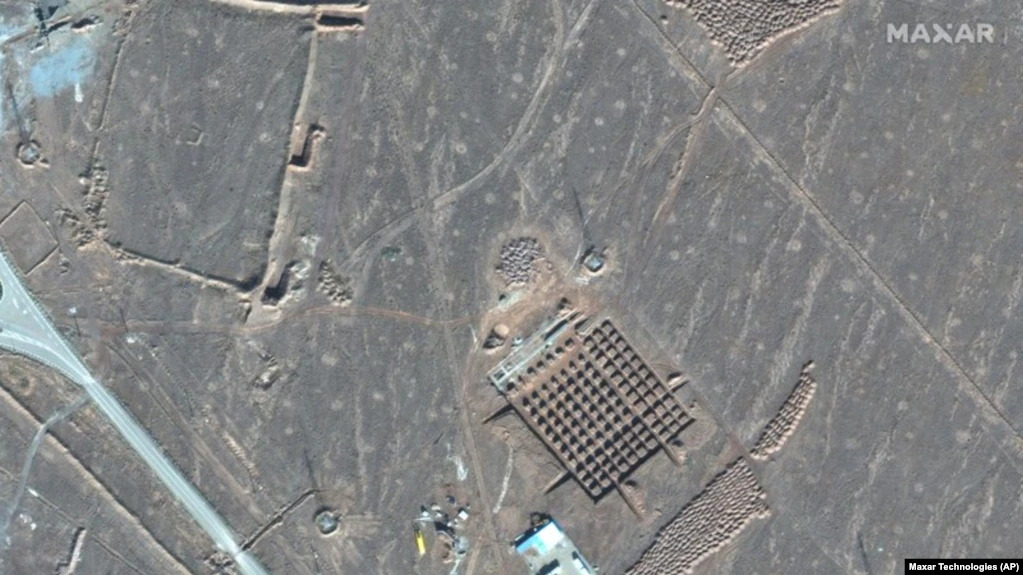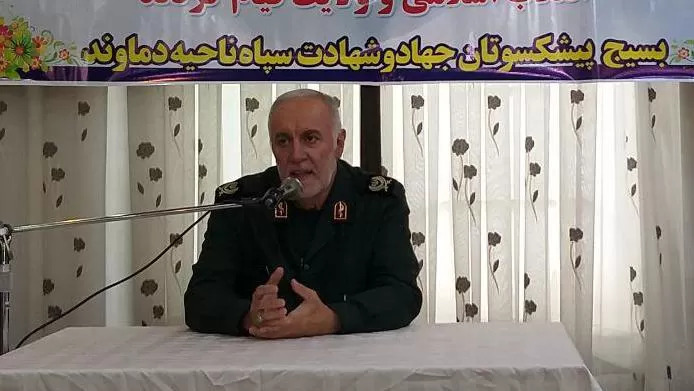
Evidence of Iran Turning Into Another Venezuela
The editorial of Jahan Sanat explains why Iran’s economy is moving toward becoming like Venezuela’s economy.
In the 2000s, Iran’s “ultra-conservative hardline” politicians brought late Venezuelan President Hugo Chavez to Iran many times. Now “hardline” politicians – who once again have taken control of the Iranian Parliament, government and other institutions – will get angry when experts say that Iran’s economy has become like the Venezuelan economy.
The reality is that under the current circumstances, the Iranian government will face three issues, each of which has been experienced in Venezuela.
The first two issues are soaring inflation and a widening budget deficit. Perhaps, the skyrocketing inflation rate in Venezuela is not comparable with that of Iran, but there are similarities. Since 2019, the inflation rate in Iran has remained at 40 percent – partly causing the budget deficit which has crippled the government.
Some international organizations predict that if sanctions on Iran increase, this trend will continue in the coming years. The inflation rate in Iran is currently one of the highest in the world. This has been an ongoing trend, and if sanctions are escalated and Iran’s national currency keeps losing its value against other currencies, the inflation rate will rise. Iran, as such, is undoubtedly heading toward becoming another Venezuela.
The other issue is squandering oil revenues. Both Iran and Venezuela have played a considerable role in the international oil export market. These two countries were able to use oil revenues for bolstering their infrastructure and increasing oil production and exports. But now they have both lost their capacity to produce and export oil because of the sanctions imposed on them by the West, particularly the United States. And even if sanctions are lifted, they both must make considerable investments to create proper facilities and capacities for exporting oil.
With the continuation of the West’s sanctions on investment in Iran’s oil and gas sector, as well as competition from the UAE, Qatar, Iraq, Saudi Arabia and Russia, it has become difficult to invest in the oil and gas sector. In this regard, Iran is moving toward becoming another Venezuela.
Preserving the JCPOA Depends on Cooperating With the IAEA
The editorial of Arman Melli argues for Iran cooperating with the International Atomic Energy Agency (IAEA) to avoid the imposition of more sanctions on the country. As such, Iran will open the door to more foreign investment and creating more jobs.
Currently, Iran is under severe pressure due to three trends. First is the domestic issues in the form of the popular protests which have resulted in the imposition of sanctions ion Iran by Germany and the EU. It is not important which individuals or what organizations are targeted by these sanctions; their significance is that they damage Iran’s status in the world.
Second is the issue of Iran selling arms to Russia. Given that under UN Resolution 2231, Iran is banned from selling and buying arms, this has turned into a sensitive issue for Iran. Third is the issue referred to by France and Germany. These countries have made huge investments in the Middle East and want to continue to do so. The French and German presidents have underscored that Iran destabilizes the region and creates problems for the Gulf states.
These three issues have created a hostile atmosphere against Iran in the global community. Recently, the IAEA issued a resolution against Iran which is just a warning and has no executive impact. But at the same time, Iran has been asked to allow the inspection of its nuclear sites.
Iran must accept this demand as the IAEA Board of Governors will hold a session in three months. If Iran does not agree to these inspections, a harsher resolution might be issued against the country and its case might be referred to the UN Security Council. This will result in the imposition of further sanctions against Iran and Iran will go under Chapter VII of the UN Security Council.
So, Iran must preserve its relationship with the IAEA. Western countries are doing their best to stop Iran from heading toward more uranium enrichment. In fact, as Iran does not cooperate with the IAEA or negotiate with the West, the sanctions might result in Iran increasing its uranium enrichment, which might provoke Israel to react to Iran’s nuclear activities. The United States will certainly follow Israel, and Iran will have to engage in an unwanted destructive war.
Iran, therefore, must be after resolving its issue with the IAEA, which can result in de-escalation within the country. We must not forget that the country’s economic problems have created dissatisfaction among people and these problems will not be resolved unless there is more foreign investment and more jobs are created.
Who Were the Real Unfriendly Ones?
The editorial of Mardomsalari explains that the “ultra-conservative hardliners” in Iran, who have made the country miserable and poor through their flawed decisions, have been the real enemies of the revolution in Iran.
Years ago, when “ultra-conservative hardliners” seized power in all branches, they could not tolerate any critics of the establishment and would not even care to listen to any criticisms or objections made beyond their own circle. They were after eliminating all rivals, particularly those who were critical of them.
Through ratifying laws for disqualifying their opponents, the “hardliners” sought to legally eliminate their rivals. But the attempt to silence critics was not successful, which is why media outlets affiliated with the “hardliners” started undermining the characters of their rivals.
Using a sentence from Khomeini’s will, “Whether I am among you or not, don’t let the revolution fall into the hands of unfriendly people,” the “hardliners” accused their rivals of being disloyal to the revolution, stressing that the revolution should not fall into their hands. Such remarks were used for years by the “hardliners” to eliminate other politicians and social activists.
Of course, people would not pay too much attention to such remarks, as in the 1997 presidential election they voted for “reformist” Mohammad Khatami, and not the “hardliner” candidate. Now, 30 years after employing Khomeini’s remarks and given the critical conditions that exist in the country, the question is: who were the real unfriendly ones? The “ultra-conservatives” or their rivals?
Were not those who enforced disastrous policies and antagonized the world and put the country under severe sanctions the unfriendly ones? Were not those who made the majority of people distrustful of the political system and hopeless and frustrated the real unfriendly ones?
Were not those who hijacked the revolution to make themselves wealthy and powerful the real unfriendly ones? Were not those officials and individuals who through rent-seeking made the country miserable and poor the real unfriendly ones?
The real unfriendly ones are those who deprived people of a simple, decent life.
Competition Between Dollar and Ruble
The editorial of Jahan Sanat explains why the Iranian people favor the US dollar over the Russian ruble.
These days, the price of the US dollar in Iran is breaking new records almost every day, while the Central Bank of Iran must use all its power to decrease people’s desire to purchase dollars. How come the dollar’s price does not decline despite all official and unofficial news released by state-run news outlets to decrease its price?
All these years, there were rumors of Iranian households saving their money in the form of dollars, alleging that Iranian citizens are in possession of roughly $20 billion.
On the other hand, there has never been any news of the Iranian people being in possession of Russian rubles. How come Iranians from different walks of life are in love with the US dollar? The truth is that the US dollar is not only preferred in Iran, but is favored all over the world, while no special interest is shown in the Russian ruble. That is because people know that the US dollar means power. The Iranian people’s love for the US dollar has made the situation very difficult for officials because with the dollar’s price rising against the Iranian national currency, Iranians keep favoring the US dollar. Unlike Iranian statesmen, Iranian citizens know very well that they would rather have a foreign currency which is taken seriously in the world.
On the other hand, the all-out truth is that the Iranian authorities are after friendly relations with Russia whose currency is not favored in Iran and the world, instead of trying to fix their relations with the United States whose currency is so powerful. It seems that Iranian statesmen must learn from the Iranian people about which country and which currency they should trust.

Iranian Lawyers’ Letter to the UN About the Iranian Government Killing Children

In an open letter to the UN Secretary General, the UN Committee on the Rights of the Child, the UN Human Rights Council and UNICEF, a number of Iranian lawyers demand that they should immediately address the issue of the Iranian government’s inhumane measures in killing children.
20 signatories of the letter have asserted that during the popular movement of Woman, Life, Freedom in Iran which started in September 2022, the oppressive Iranian government has killed more than 50 children, while injuring and arresting a large number of children.
Iranian lawyers have asked these international organizations to not only condemn the Iranian government’s measures in killing, injuring, arresting and illegally detaining children, but also prioritize documenting violations of human rights during the crackdown on recent protests in Iran so that international justice mechanisms can address these issues in the future.
The signatories have particularly asked UNICEF to use all its power to force the Iranian government to observe its international and domestic obligations regarding children and put an end to the current critical situation.
According to the human rights news agency HRANA, until Monday, the number of those killed by Iranian security and armed forces during the recent protests has increased to 434, including 60 children and individuals under the age of 18. In addition, at least 17,451 protesters have been arrested while protests have been held in 155 cities of Iran.
People and activists have strongly criticized the silence of organizations defending children’s rights like UNICEF regarding the killing of children in the nationwide uprising in Iran.
The Iranian government has been described as a “children-killing regime,” a title previously attributed to Israel by the Iranian leadership.
Iranian Hospitals Facing Shortage of Medical Supplies

There is a shortage of 200 medical items along with a shortage of medicines in Iran. Hospitals have reportedly faced a severe shortage of medicines and medical supplies, which has resulted in a delay in surgical operations.
Medical equipment, in particular items for heart, eye, orthopedic and brain procedures as well as other medical supplies are reportedly the most scarce items, while the Iranian Health Ministry and Food And Drug Organization are blamed for the current crisis.
The shortage of medicines and medical equipment has been one of the most serious crises facing Iran for years, but in recent months this crisis has become so much worse that Iranian citizens are now facing many problems in accessing common domestically produced medicines.
As Iran is suffering from a shortage of medicine and medical equipment, in recent weeks the popular protests have continued all over the country and many citizens injured during the protests have been in dire need of immediate treatment and surgery.
In the meantime, Iranian security forces have used ambulances to transport their forces and detainees – an issue that has made the situation more complicated.
The medicine crisis in Iran has most significantly impacted patients with rare diseases.
In recent years, the Iranian government has blamed the international sanctions against Iran as the main cause of the shortage of drugs in Iran. But it was recently announced that the Iranian Health Ministry ordered the destruction of large amounts of imported IVs and medicines.
Iranian lawmaker Mohammad Javad Nikbin has pointed to the skyrocketing prices of some medicines, highlighting that the current situation has benefitted certain individuals within the country.
Iran Started 60 Percent Uranium Enrichment in Fordow for First Time

Iran has announced that in reaction to the resolution of the IAEA Board of Governors, it has started 60 percent uranium enrichment in the Fordow nuclear facility for the first time since Monday morning.
This is the first time that Fordow has enriched uranium by 60 percent. This process started earlier at the Natanz nuclear site, and according to the Atomic Energy Organization of Iran (AEOI), it still continues there.
According to the AEOI, one of the measures taken to do so was to replace the first generation of centrifuges with advanced IR-6 centrifuges.
According to the nuclear deal (JCOPA), Iran is only allowed to enrich uranium up to 3.67 percent, but with the United States pulling out of the JCPOA, Iran has started to increase its uranium enrichment by 60 percent step by step. This level is less than what is needed for building a nuclear bomb which requires 90 percent enrichment, but experts say reaching that level will not take long.
The IAEA director general had earlier stated in an interview that Iran, with its current level of uranium enrichment, is closer to building a nuclear bomb and is able to make several nuclear bombs.
On November 17, the IAEA Board of Governors ratified a resolution demanding Iran to immediately cooperate with the IAEA’s inspectors in investigating traces of uranium in undeclared nuclear facilities.
This was the second resolution of the IAEA Board of Governors regarding Iran’s nuclear program, but Tehran has requested the closure of this case, urging that it will not return to the JCPOA otherwise.
Negotiations have reached a stalemate between the IAEA and Iran regarding the outcomes of the agency’s investigations into the source of uranium in Iran’s three undeclared facilities.
In the meantime, according to Israeli Defense Force Intelligence Chief Aharon Haliva, Iran will likely soon carry out at least a symbolic uranium enrichment up to 90 percent, which is considered a weaponized level.
IRGC Senior Member Appointed as Tehran’s Governor

While the popular protests in Iran, including in the city of Tehran, entered the tenth week, an IRGC senior commander has been appointed as Tehran’s new governor, thus completing the Iranian establishment’s military formation to confront protesters in the capital city.
General Alireza Fakhari, the new governor of Tehran, was one of the IRGC’s commanders during the Iran-Iraq War, and until last year he was deputy coordinator of the Khatam al Anbiya Construction Headquarters, which is considered to be the IRGC’s economic arm.
Prior to this, Mohssen Mansouri was Tehran’s governor, but after he was appointed as the Iranian president’s executive deputy, Tehran had no governor at the peak of the ongoing popular protests.
The appointment of Fakhari to this position reveals the Iranian government’s intention to further its military-security approach in managing Iran’s capital city.
With appointing Fakhari to the position of Tehran’s governor, it can be expected that there will be more violence and an escalation of the security approach in the capital city.
Currently, what is undoubtedly true is that the IRGC has taken over Ebrahim Raisi’s government, with many IRGC commanders being appointed as governors in different provinces.
Interior Minister Ahmad Vahidi was also one of the IRGC’s senior commanders and worked in the Defense Ministry as well.
